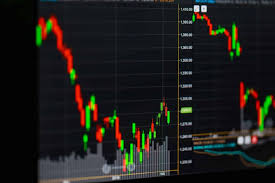Comprehensive Guide to Forex Trading Brokers

Comprehensive Guide to Forex Trading Brokers
The Forex (foreign exchange) market is one of the largest and most liquid financial markets in the world, and trading brokers play a key role in facilitating this activity. Understanding how to navigate through the available options can be overwhelming for beginners and experienced traders alike. In this guide, we will discuss various aspects of trading brokers, including what to look for when choosing one, popular platforms, and the overall trading experience. For more information on reliable Forex trading brokers, please visit trading brokers forex https://tradingplatform-hk.com/.
What is a Forex Trading Broker?
A Forex trading broker acts as an intermediary between traders and the Forex market. They provide traders with access to a trading platform that allows them to buy and sell currency pairs. Forex brokers earn a profit through spreads (the difference between the buying and selling price of a currency) and sometimes through commissions on trades.
Types of Forex Brokers
Forex brokers can be classified into several categories based on their operating models. Understanding these categories is essential for choosing the broker that best suits your trading style.
1. Market Makers
Market Makers set their own bid and ask prices and are essentially the liquidity providers for their clients. They ensure that trades can be executed quickly. These brokers often make money through the spreads they charge, and they may even be involved in counter-trading, meaning they may take the opposite position of their clients.
2. ECN Brokers
Electronic Communication Network (ECN) brokers connect traders directly to the interbank market. This type of broker allows for tighter spreads and greater transparency. ECN brokers charge a commission per trade but do not usually profit from the spread.
3. STP Brokers
Straight Through Processing (STP) brokers route orders directly to the liquidity providers without the intervention of a dealing desk. They benefit from spreads and may also charge a commission. STP trading tends to offer lower latency and faster execution times.
Key Factors to Consider When Choosing a Forex Broker
When choosing a Forex broker, several key factors must be taken into consideration:
1. Regulation

Regulation is paramount in the world of Forex trading. Ensure that your broker is licensed by a reputable regulatory authority. Regulatory bodies such as the Financial Conduct Authority (FCA) in the UK or the Commodity Futures Trading Commission (CFTC) in the USA protect traders and ensure fair trading practices.
2. Trading Platform
The trading platform is your gateway to the Forex market. Look for brokers that offer user-friendly platforms with advanced trading tools, charting capabilities, and indicators. Some popular platforms include MetaTrader 4, MetaTrader 5, and cTrader.
3. Spreads and Commissions
Compare the spreads and commission structures across different brokers. Some brokers offer tight spreads with a commission on trades, while others may have no commissions but wider spreads. It’s essential to choose the structure that best fits your trading style.
4. Customer Support
Good customer support is crucial for addressing any issues or inquiries while trading. Look for brokers that offer multiple communication channels, including live chat, phone, and email support, and check customer reviews to evaluate their responsiveness.
Advantages and Disadvantages of Forex Trading Brokers
While Forex trading brokers offer numerous advantages, there are also some disadvantages:
Advantages
- Ease of Access: Forex brokers provide easy access to the Forex market, enabling traders to execute trades from anywhere with an internet connection.
- Leverage: Most Forex brokers offer high leverage, allowing traders to control larger amounts of currency with a smaller investment.
- Variety of Trading Options: Traders can access multiple currency pairs, commodities, indices, and cryptocurrencies through their brokers.
Disadvantages
- Risk of Fraud: There are numerous unregulated brokers in the market that engage in fraudulent activities. Always choose a regulated broker.
- High Leverage Risks: Although leverage can amplify profits, it can also lead to significant losses if not managed properly.
- Emotional Trading: The fast-paced nature of Forex trading can lead to impulsive decisions, making it essential to have a solid trading plan.
Conclusion
Choosing the right Forex trading broker is a critical step in your trading journey. By understanding the different types of brokers and what to look for, you can ensure that you select a reliable partner for your trading activities. Always conduct thorough research and consider factors such as regulation, platform, spreads, and customer service when making your decision. With the right broker, you can enhance your trading experience and work towards achieving your financial goals in the Forex market.